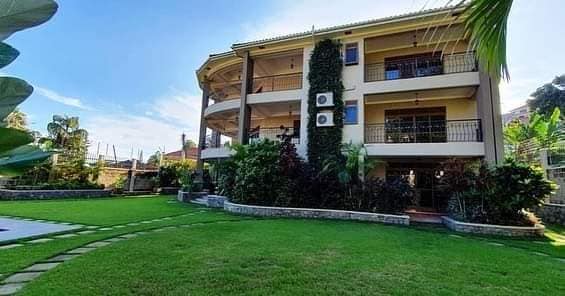Kampala Real Estate Market Trends: Navigating the Dynamic Landscape
Kampala Real Estate Market Trends: Navigating the Dynamic Landscape
As of 2023, the Kampala real estate market is experiencing remarkable growth and transformation. Kampala, the capital city of Uganda, stands at the forefront of urbanization and population expansion, fueling the demand for both residential and commercial properties. Its reputation as a regional business hub continues to attract investors, expatriates, and young professionals in search of employment opportunities.
1. Market Overview
Before we delve into the specific trends, let's start with an overview of the Kampala real estate market.
2. Residential Real Estate Trends
a. Rise of Apartment Living
One of the most notable trends in Kampala's residential real estate market is the growing preference for apartment living. Apartments offer a convenient and cost-effective housing solution, particularly in urban areas like Nakasero, Kololo, and Naguru. Many new developments feature modern amenities and advanced security features, making them appealing to both young professionals and expatriates.
b. Gated Communities and Housing Estates
Gated communities and housing estates are also on the rise, especially in suburbs like Buziga, Lubowa, and Kira. These developments offer a sense of security, a strong sense of community, and access to shared amenities such as parks, swimming pools, and recreational areas. Families, in particular, are drawn to these neighborhoods.
c. Affordable Housing Initiatives
The government of Uganda, in collaboration with private developers, is actively addressing the demand for affordable housing in Kampala. Initiatives like the National Housing and Construction Company (NHCC) aim to provide affordable housing solutions for low and middle-income earners. These efforts are expected to have a positive impact on the real estate market.
3. Commercial Real Estate Trends
a. Office Space Demand
The commercial real estate sector in Kampala is experiencing a surge in demand for office spaces, particularly in areas like Bugolobi and Nakawa, which host numerous businesses and government offices. The city's thriving economy and investment-friendly policies have contributed to this trend.
b. Flexible Workspaces
The concept of flexible workspaces, including co-working spaces and serviced offices, is gaining traction in Kampala. Start-ups, freelancers, and small businesses appreciate the flexibility and cost-effectiveness of these arrangements. This trend is expected to continue as the business landscape evolves.
c. Retail and Shopping Centers
The retail sector in Kampala is flourishing with the development of modern shopping centers and malls. Areas like Garden City Mall in Kampala Central and Village Mall in Bugolobi have become popular shopping destinations. These centers not only serve as shopping hubs but also offer entertainment and dining options, making them highly attractive to consumers.
4. Factors Influencing Market Trends
a. Economic Stability
The stability of Uganda's economy plays a pivotal role in the Kampala real estate market. A stable economy fosters investment and consumer confidence, which, in turn, drives demand for real estate.
b. Infrastructure Development
Infrastructure projects, such as road expansions and improvements in public transportation, significantly impact property values and accessibility. The completion of projects like the Kampala-Entebbe Expressway has notably improved connectivity to key areas.
c. Government Policies
Government policies, including land tenure reforms and tax regulations, wield substantial influence over the real estate market. Staying informed about any policy changes that may affect real estate investments is imperative for investors.
5. Challenges in the Market
Despite the myriad opportunities in the Kampala real estate market, challenges persist:
a. Land Disputes
Land disputes and land tenure issues are not uncommon in Uganda. Aspiring investors must exercise due diligence to ensure the legitimacy of property titles.
b. Infrastructure Gaps
Although infrastructure has improved, gaps still exist in certain areas, impacting property values and accessibility.
c. Financing Constraints
Access to affordable financing remains a challenge for many potential property buyers, potentially affecting the affordability of homes and slowing down certain market segments.
6. Future Outlook
Looking ahead, the Kampala real estate market is poised to continue its growth trajectory. The city's strategic location in East Africa, coupled with ongoing infrastructure development and government initiatives, is expected to attract more investors and residents.
7. Conclusion
In conclusion, staying informed about the current and emerging trends in the Kampala real estate market is paramount for individuals contemplating property investment or relocation in the city. Whether your interest lies in residential or commercial real estate, the key is to stay informed, conduct thorough research, and collaborate with reputable real estate agencies like JuhaProperties to navigate this dynamic market successfully.
The real estate landscape in Kampala is evolving, and those who adapt to these changes can seize the opportunities presented by this vibrant and growing city.
 English
English Русский
Русский Español
Español العربية
العربية Türkçe
Türkçe






Die Liste der Kommentare ist leer.